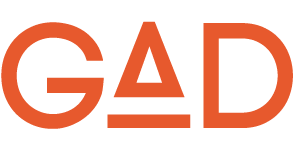Stephen Lyon
Durham University
March 7, 2017
My University is considered one of the research intensive universities of Britain. We are one of the largest in terms of faculty numbers as well as student intake. We teach methods at every year of our undergraduate programmes and all single honours students are required to do a double dissertation module in their final year in which they must produce or analyse primary data as part of a supervised independent project. We struggle with weaning them off the excessive teaching that has come to characterise the sorts of schools from which our students come (more than half come from the independent, fee paying secondary school sector). Getting students to produce their own research questions is a challenge for some students and I’ve often wondered why they find it so difficult to think of what they’d like to know about some situation. This has led me to reflect on how I come up with questions that I find interesting– which I am convinced is a necessary early part of preparing a coherent research project. I’ve done this in different ways over the years. Some field research has been very ‘scripted’ and I’ve had pre-determined goals for number and category of informants I would need and specific tasks that I would ask them to carry out. Frequently, particularly during my doctoral research, such questions have come from someone other than me– they are other people’s questions that I find interesting and so I borrow comparable methods and adapt them to my field situation. At other times, I’ve had little to no agenda and have just followed friends where they went and waited for something interesting or exciting to come up. I’m completely sold on both approaches. I wouldn’t like to forego having clear, hypothesis driven research design to investigate research problems that are being debated by others, but I think I would burn out if I had to restrict myself to the questions that other people find worthwhile. I find that some of the most interesting questions only pop up while I’m exploring something unrelated and I’ve found that I need to build in time to allow the space to stretch beyond my own imagination. I took a group a masters students on a short field course (about two weeks) to Lebanon. There were some students who had done anthropology as undergraduates, but most had come from political science and international relations. The masters programmes were delivered by the Durham Global Security Institute, one was designed to appeal to the ‘hawks’ and the other to the ‘doves’. So a wide political spectrum was represented and we were dealing with very sensitive issues of conflict and post-conflict emotions and change. The other faculty members running the course with me were both from political science/IR. Their schedule was absolutely packed with proper interviews with different categories of key people (members of parliament, retired military, representatives from the major political parties, families of the victims, perpetrators of violence, Hezbollah public relations people, representatives of the Maronite patriarch, Syrian refugees, etc). At every place we went, I chatted to the drivers, the cleaners, the guards, the low level ‘ordinary’ people who were on the fringes of the powerful office holders we were there to meet. Almost without exception, the students and my colleagues realised very quickly that janitors and drivers and low ranking guards know a lot about what happened during the civil war and the Israeli occupation. By the end of the third day, all the students had figured out that taking the time to talk to everyone would yield dividends. On some occasions, it didn’t advance our knowledge, but it made us some friends. On other occasions, we got invited back to people’s houses where they shared their intimate memories of war crimes and how they put their lives back together knowing that the people living nearby had murdered their loved ones. We were then able to interpret the narratives from the people nominally in charge of everything slightly differently. So the students learned that the big political narratives are insufficient through serendipitous interactions with random strangers. I learned, that when you have 15 ‘naive’ student ‘helpers’ you can substantially increase the range of questions you can generate. I had never been to Lebanon before but in those two weeks, I learned enough to go home and start thinking seriously about a formal design to explore interesting questions. My University won’t allow me to take Durham students to Pakistan, but now that I’ve had such a positive experience accompanying students in the field, I am keen to develop a field site that will serve as a field school where we can conduct both explicitly designed research projects and generate new and exciting research questions through less controlled wandering and asking the naive, yet sincere, questions of people from all categories.
Stephen Lyon (BSc U of London; PhD U of Kent) is the Head of Anthropology at Durham University. Durham Anthropology is one of the largest anthropology departments in the United Kingdom, and one of the very few integrated biological and social anthropology departments. He is mostly a sociocultural anthropologist with a strong interest in rural and urban Pakistan. His primary research looks at politics, kinship and religion in Pakistan and among Pakistani Diaspora. He was elected President of the Society for Anthropological Sciences in 2017. http://orcid.org/0000-0002-3249-3853
